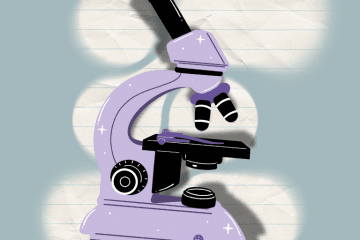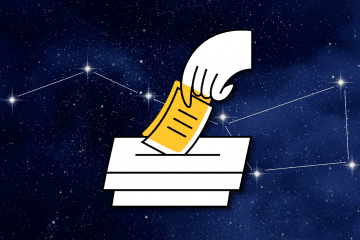![[2]mfe](http://www.carillonregina.com/wp-content/uploads/2011/01/2mfe-300x300.jpg) With Cote d’Ivoire’s leadership in the wrong hands, civil war becomes a real possibility
With Cote d’Ivoire’s leadership in the wrong hands, civil war becomes a real possibility
Ed Kapp
News Writer
Once regarded as a role model for other developing West African nations, for both its ethnic harmony and well-developed economy, Cote d’Ivoire is now in a state of turmoil as disputed presidential election results are threatening to push the sub-Saharan nation back into a state of civil war.
Led by the nation’s first president, Felix Houphouet-Boigny, since gaining independence from the French in 1960, Cote d’Ivoire was once home to one of West Africa’s most robust economies. In 1979 the nation supplied almost half of the world’s cocoa supply, and was the third most prolific coffee producer on the planet behind Brazil and Colombia.
Naturally, Cote d’Ivoire’s prospering economy attracted millions of desperate migrant workers from less stable West African nations, like Burkina Faso, Liberia, and Mali.
After passing away in 1993, President Houphouet-Boigny was succeeded by Henri Konan Bedie.
Although Houphouet-Boigny was careful to avoid any form of ethnic conflict between native Ivorians and the nation’s vast numbers of migrant workers, Bedie diligently emphasized his concept of a pure, unadulterated Ivorian cultural identity, or “Ivority” as he referred to it when he coined the term in 1995.
Although the exact reasons were ambiguous, many speculated that Bedie’s emphasis on “Ivority” meant to exclude his main political rival Alassane Outtara, born to two northern Ivory Coast parents, from the nation’s newfound democratic proceedings and from participating in future elections.
Consequently, Bedie’s newfound concept of “Ivority” not only excluded his main political rival from Ivorian nationality, but also millions of other citizens who originated from foreign nations, many of which had lived and worked in Cote d’Ivoire for two generations.
Although Bedie removed many of his opponents from Cote d’Ivoire’s military throughout his seven-year tenure as the nation’s president, a group of disgruntled officers staged a military coup in late 1999. Bedie was replaced with retired General Robert Guei as the nation’s president.
In the next election, Geui was displaced by Laurent Gbagbo, a former history professor who hailed from the nation’s south.
In the early hours of Sept. 19, 2002, while President Gbagbo was in Italy, an armed uprising occurred. Troops due to be demobilized launched simultaneous attacks in several major cities across Cote d’Ivoire. After several hours of fighting, they had secured control of north Cote d’Ivoire.
Within a month, a ceasefire was signed and negotiations to bring stability back to the West African nation were underway.
To bring both sides together for further negotiations, the two parties signed a compromise at Linas-Marcoussis in late January, 2003. The two parties agreed to work together to modify Cote d’Ivoire’s conception of national identity, citizenship eligibility requirements, and land tenure laws, three issues that many observers believed to be the root causes of the conflict.
Unfortunately, Gbagbo and the rebel leaders’ “government of national unity” proved to be unstable and deteriorated shortly thereafter.
In late 2004, after the two parties’ peace agreement essentially collapsed following the rebels’ refusal to disarm, Gbagbo ordered a series of violent air strikes against his opponents in northern Cote d’Ivoire.
Although Gbagbo’s presidency ended in October of 2005, instability among the government and rebel fighters and the rebels’ unwillingness to disarm caused elections to be deemed impossible and Gbagbo’s term was initially extended by one year.
After a series of delays and six postponements, the first round of Cote d’Ivoire’s presidential election finally occurred on October 31st, 2010. After the first round of voting, Gbagbo’s Ivorian People’s Front party garnered 38 per cent of the vote, beating Ouattara’s Rally of the Republicans party with roughly 32 per cent.
After the second round of voting ended in mid-November, controversy began to mount.
Initially, Cote d’Ivoire’s Independent Electoral Commission (IEC) declared Outtara the election’s winner and new president, having garnered 54 per cent of the votes cast.
Soon after the IEC made their declaration, however, the election’s result was overturned by the Constitutional Council, the members of which were all appointed by Gbagbo, who ruled that the incumbent had won.
Since then, self-declared President Gbagbo has held on to power despite immense pressure from outraged regional powers. The United Nations, the European Union, and African Union all recognize Ouattara as Cote d’Ivoire’s rightful leader.
Despite a great deal of pressure from outside observers, Gbagbo has thus far refused to step down, and at this point in time shows no willingness to cede power.
Ouattara, Ivory Coasts’ internationally recognized president, has since formed a shadow government and is currently living and working from a Gulf Hotel in Cote d’Ivoire’s largest city, Abidjan.
Recently, Outtara ordered Ivory Coast’s military to desert Gbagbo and protect the nation’s population against militias and foreign mercenaries. So far, military leaders have remained loyal to Gbagbo.
Since November’s election, over 200 Ivorians have been killed and hundreds more are currently missing, widely believed to be buried in mass graves that are heavily protected by armed Gbagbo supporters, leading the U.N. to believe that Gbagbo’s backers are responsible for the myriad of human rights abuses that currently plague Cote d’Ivoire. U.N. officials estimate that upwards of 30,000 refugees may flee to Liberia if violence persists in Cote d'Ivoire.
Although Gbagbo denies these claims, he has since ordered the U.N. to withdraw its more than 9,000 personnel currently deployed in Cote d’Ivoire. Fortunately for Outtara, the U.N. has refused to leave.
Last week, the presidents of Benin, Cape Verde, and Sierra Leone travelled to Cote d’Ivoire in an attempt to persuade Gbagbo to cede power, but no tangible results came.
As of right now, it’s unclear if these meetings will have any impact on Gbagbo’s decision to remain in power or leave office, as the self-declared president has already proven unmoved by economic sanctions enacted by the Central Bank of West Africa, as well as travel sanctions imposed by the United States.
The Canadian government has also voiced their dissatisfaction with Gbagbo’s regime, and are currently working with other nations, including U.N. Security Council members, “to determine how best to achieve the desired result of pressuring Laurent Gbagbo to cede power,” explained Melissa Lantsman, a spokesperson for Foreign Affairs Minister Lawrence Cannon.
On December 30th, Youssoufou Bamba, an Ouattara appointed ambassador to the U.N. made international headlines when he insisted that Cote d’Ivoire was on the “brink of genocide.”
Three days later, Ouattara’s Prime Minister Guillaume Soro addressed The Associated Press.
“In any country that records more than 200 dead in five days, as the UN has certified, it’s war. When a country experiences a massive flight of the population, more than 20,000 Ivorians who leave their country to seek refuge in a country like Liberia, it’s war.”










[…] On the Diplomatic front, things are looking decidedly rosy. That is, if you are a Palestinian. For Israel, however, the future is looking bleak. On the one hand, we have a Hamas/Fatah terrorist unity government which has managed In addition you can check out this related post: http://www.carillonregina.com/?p=2036 […]